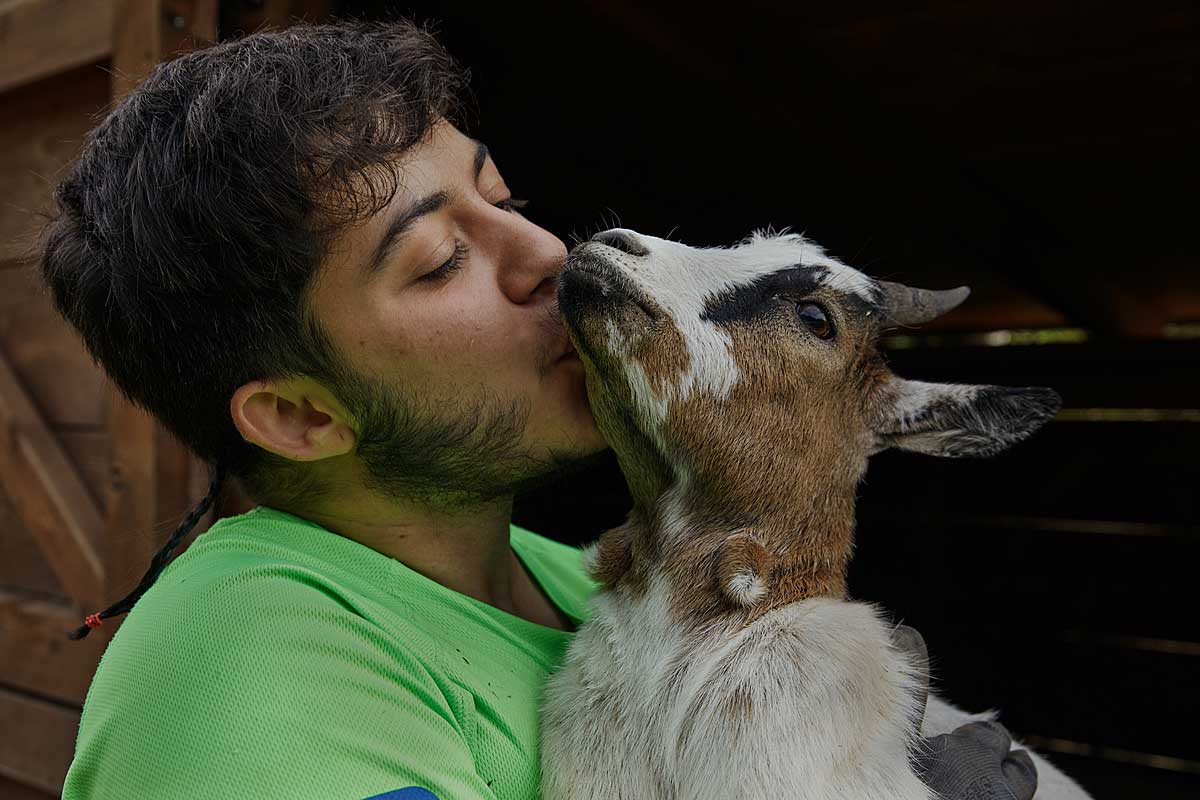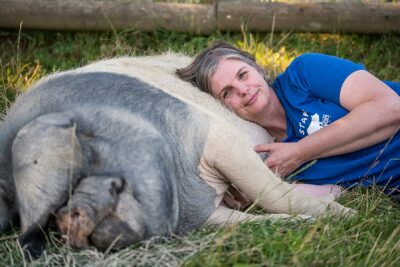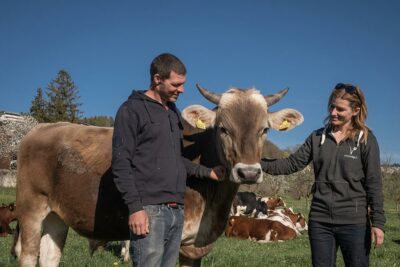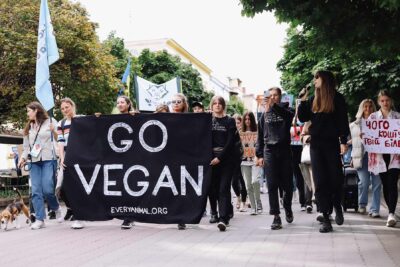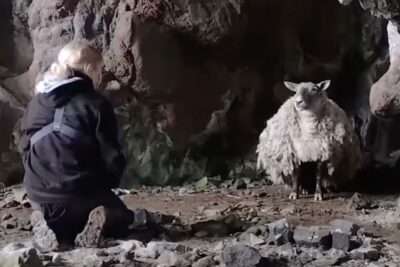Humans’ relationship with non-human animals is complex. We love some, loathe some, and deliberately harm others while still claiming to love them. It’s mind-boggling. Here, we unpick some of the psychological knots we tie ourselves in so that we can both love animals and eat them. And, of course, we offer a different way.
The Meat Paradox
Dr. Steve Loughnan coined the phrase, ‘the meat paradox’ to describe the contradiction that allows people to both love animals and pay to have them slaughtered. Says Loughnan: “Out of their mouths come the words ‘I love animals’ and into their mouths go animals.”
The meat paradox is a form of cognitive dissonance — a state where a person’s beliefs do not align with their actions. According to Loughnan there are two ways in which we approach this dissonance:
- Dissonance avoidance is where we sever the link between animals and meat, and this can show up as mindless consumption. Quite simply, we just don’t let ourselves think about it.
- Dissonance reduction is where we may recognize and experience that inner conflict, but we find ways to reduce it so we can continue eating animals.
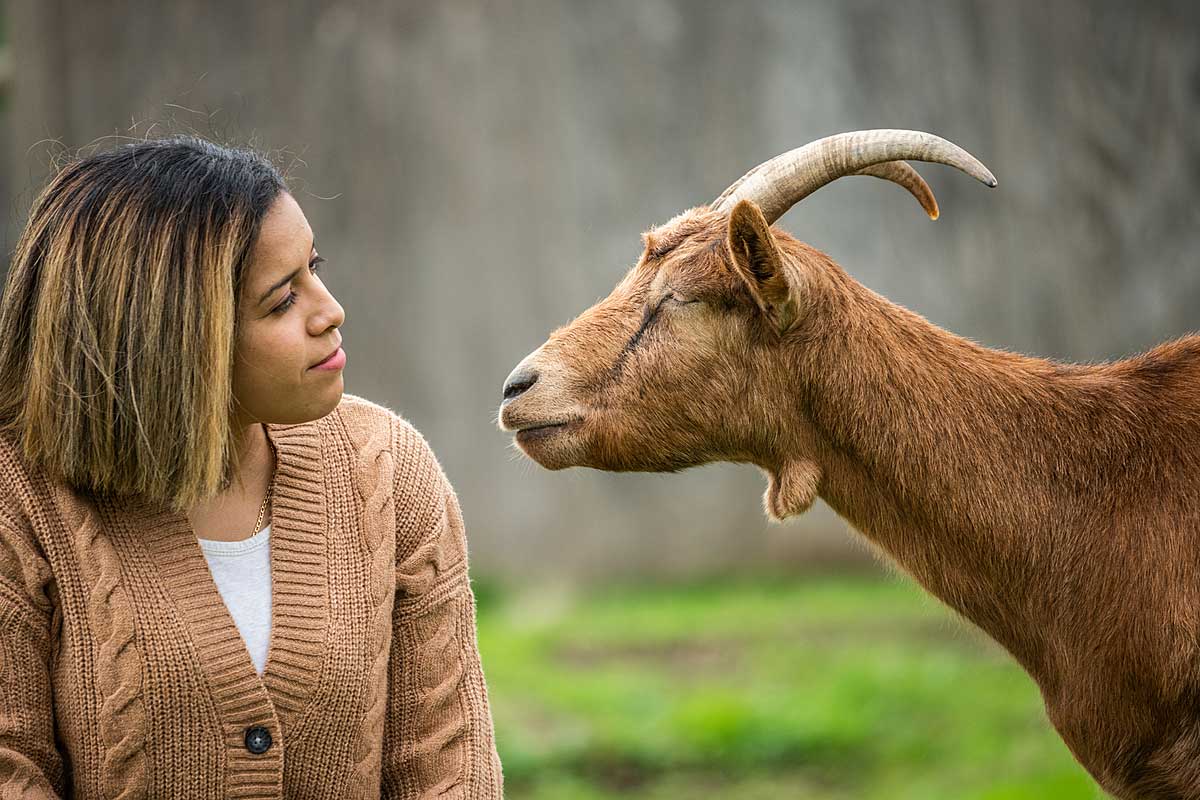
How Do We Reduce Dissonance?
There are many psychological tools that people use to reduce the conflict they feel between loving animals and eating them. For example, they may:
- underreport how much meat they eat
- insist that slaughter is humane
- say “I only eat chicken or fish”, with the implication that these animals suffer less or their lives are less important
- categorize animals as ‘pets’ or ‘food’ and see food animals as less able to suffer
- indulge in “do-gooder derogation”, where they belittle those who have taken steps to bring their actions into line with their compassionate beliefs
- deny the minds of farmed animals
What is Mind Denial?
Mind denial involves ascribing reduced mental capacities to certain animals, which allows people to exploit and harm them with fewer — or no — feelings of guilt. After all, if an animal is really just a walking vegetable, we don’t have to care about them, do we?
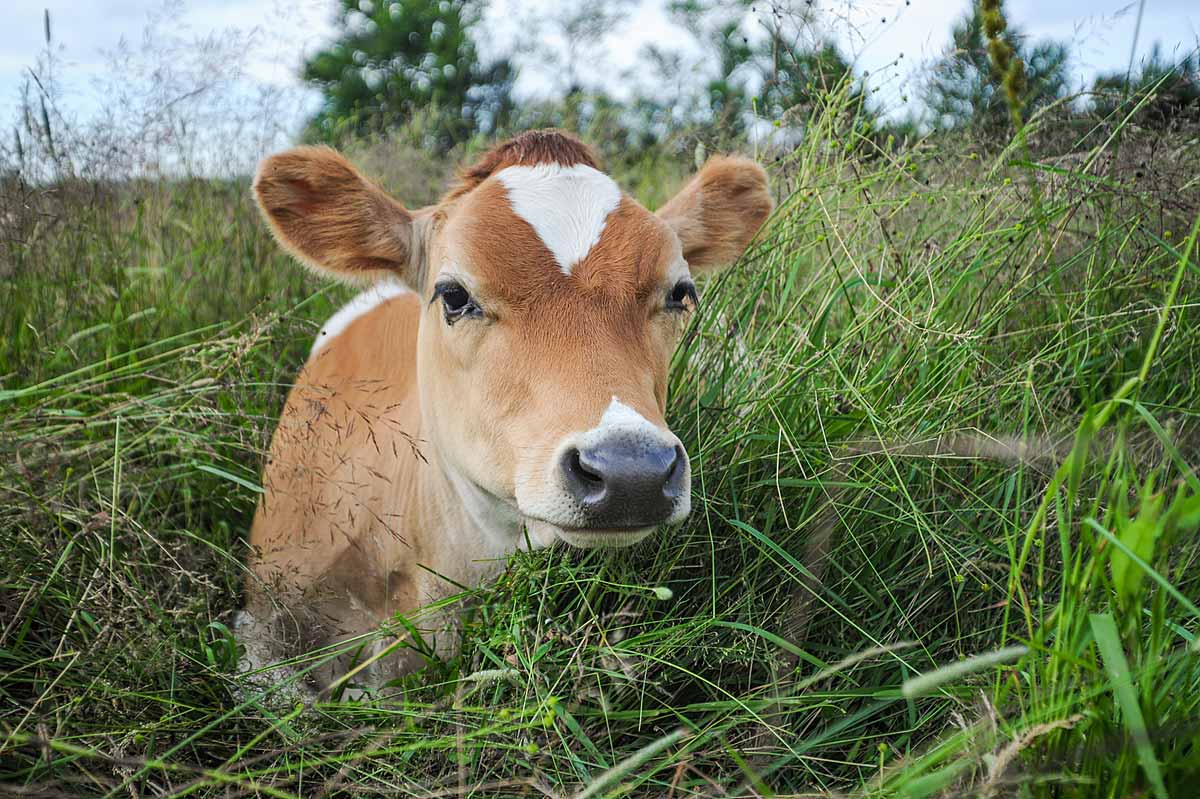
The Science Behind Mind Denial
Back in 2010, Loughnan’s team offered participants either some dried beef or dried nuts and then asked them questions to assess 1) their moral concern for animals, and 2) judge the moral status and mental abilities of a cow. The researchers found that those who had eaten the meat showed less moral concern for animals and thought that cows were less able to suffer than those who ate the nuts. They denied the minds of cows, and eating meat meant they were more likely to do that.
More recently, Maria Ioannidou of the University of Bradford investigated this by showing research participants the conditions that cows live in, either on an industrial dairy farm or on an organic dairy farm, and then asked them how they felt. Interestingly, those who were shown the intensive farm had more feelings of guilt (which we might expect) but attributed less mind to cows and had less moral concern for them (which we might not). Despite this, they still had a greater likelihood of reducing their dairy intake as a result, suggesting that — even with all the psychological strategies they employed — the horror of intensive farming still cut through, and they wanted to reduce their involvement in the animals’ suffering.
Which Animals Are Most Affected by Mind Denial?
Chickens and fish rate particularly low for mind attribution, which may explain the defensive psychological strategy we mentioned above: “I only eat chicken and fish.” However, Ioannidou found that whichever animals or animal products a person eats, those are the animals who have their minds denied. A meat–eater denies all farmed animals have minds, a pescatarian denies the minds of fish; a vegetarian denies the minds of dairy cows. It’s not that those animals do not have minds, of course, but because pretending they don’t is the only way we can allow ourselves to keep eating the products.
Do Farmers Love Animals?
Dr. Jared Piazza from the University of Lancaster researched the care-kill conflict in farmers to answer the question, can farmers love animals and still send them to slaughter? Piazza interviewed farmers, meat-eaters, and meat-avoiders, and found that both the meat-eaters and the farmers denied minds to cows in a way the vegetarians and vegans did not. And this is how they cope with the paradox of caring for animals while still harming them. Piazza noted that farmers denied they had a choice.
Do Children Deny the Minds of Animals?
Research shows that, compared to adult omnivores, children tend to hold stronger moral views about the wrongness of harming animals to use as food. Research by Dr. Luke Maguire at the University of Exeter found that 9-11-year olds give farmed animals the same consideration as pets, and eating meat is less acceptable to them.
Maguire found that as they get older, children are more likely to categorize farmed animals as food, and they experience more psychological conflict between the ages of 12 and 16. At this age, children are even less morally concerned about farmed animals than adults.
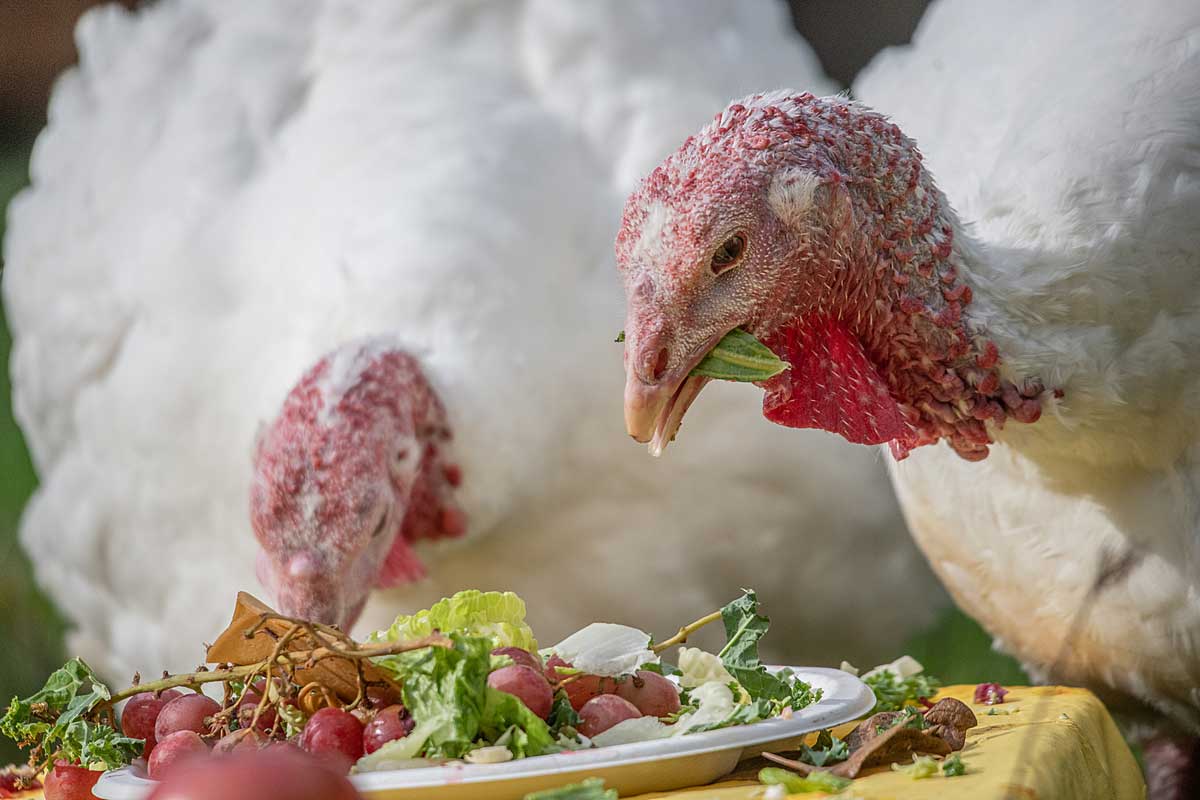
The Minds of Animals
Psychologists are increasingly discovering the mental knots we tie ourselves in so that we can hold two contradictory positions at the same time. Mind denial is one important mechanism used to make us feel better about eating animals, even as we purport to love them. But animals do have minds. Cows, chickens, pigs, sheep, and turkeys all have unique personalities, preferences, friendships, and desires. Just as dogs and cats do. Just as we do.
And deep down, even as it is denied, people do know that, which is why research found that:
- 44 percent of U.S. citizens favor a ban on slaughterhouses
- 35 percent of Americans favor a ban on farming animals
If people really thought that animals had no minds or did not suffer, this would not have been the case. Thankfully, more and more people are not only recognizing this conflict within them, they are abandoning such convoluted psychological mechanisms. Instead of denying what is obvious and true, they bring their actions into line with their compassionate beliefs and simply stop eating animals.
Want to see what it is like to bring your actions in line with your beliefs? Try our free 7-day guided vegan challenge for animals.
